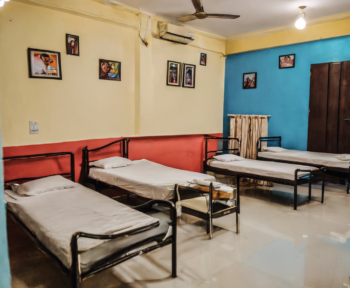In today’s digital age, privacy and security concerns are at an all-time high. With the prevalence of social media and online photo-sharing platforms, it’s easier than ever for our personal photos to end up in the wrong hands. One recent concern that has arisen is the phenomenon of Suchi leaks, where private photos of individuals are exposed without their consent. This can have devastating consequences for the individuals involved, leading to invasion of privacy, cyberbullying, and even extortion. In this article, we will discuss what Suchi leaks are, how they happen, and most importantly, what steps you can take to protect your photos and maintain your privacy in the digital world.
Understanding Suchi Leaks
Suchi leaks, named after the infamous 2014 leak of private celebrity photos which targeted high-profile individuals including Jennifer Lawrence and Kirsten Dunst, refer to the unauthorized release of private or intimate images of individuals usually obtained through hacking or phishing techniques. These leaked photos are often shared on various websites and social media platforms without the consent of the individuals depicted, leading to widespread dissemination and potential exploitation.
How Suchi Leaks Happen
Suchi leaks can occur through various means, including:
1. Hacking: Hackers may gain access to your cloud storage accounts, email accounts, or other online platforms where you store your photos. This can happen through weak passwords, phishing attempts, or vulnerable security systems.
2. Phishing Attacks: Cybercriminals may send fraudulent emails or messages pretending to be from legitimate sources in order to trick you into revealing your login credentials. Once they have access to your accounts, they can steal your private photos.
3. Unauthorized Access: Sometimes, people who have physical access to your devices or accounts may leak your photos intentionally or unintentionally. This can happen if someone gains access to your phone, laptop, or storage devices without your knowledge.
Protecting Your Photos
With the rise of Suchi leaks and other privacy breaches, it’s crucial to take proactive measures to safeguard your digital assets. Below are some practical tips to help protect your photos from unauthorized access and leaks:
1. Use Strong, Unique Passwords: Ensure that all your online accounts have strong, unique passwords to prevent hackers from easily guessing or cracking them. Consider using a password manager to securely store and manage your passwords.
2. Enable Two-Factor Authentication (2FA): Two-factor authentication adds an extra layer of security by requiring a second form of verification, such as a code sent to your phone, when logging into your accounts.
3. Encrypt Your Devices: Encrypting your devices, such as your smartphone or laptop, can help protect your data in case your device is lost or stolen. Most modern devices have built-in encryption options that you can enable in the settings.
4. Be Mindful of What You Share: Avoid sharing sensitive or intimate photos online or through messaging apps, as once it’s out there, you have little control over where it ends up. Think twice before sending any photos that you wouldn’t want the world to see.
5. Regularly Update Your Software: Keep your devices and software up to date with the latest security patches and updates. Outdated software may have vulnerabilities that hackers can exploit.
6. Use Secure Cloud Storage: If you store your photos in the cloud, opt for reputable and secure cloud storage services that offer robust encryption and security features. Avoid using shared or public cloud services for storing private photos.
7. Review App Permissions: Be cautious about granting unnecessary permissions to apps on your devices. Some apps may request access to your photos or other sensitive information that they don’t actually need. Review and revoke permissions for apps that don’t require access to your photos.
8. Regularly Check Your Privacy Settings: Review the privacy settings on your social media accounts and adjust them to control who can see your photos and what information is visible to the public. Limit the audience for your posts to friends and family only.
9. Backup Your Photos: Regularly backup your photos to a secure external hard drive or offline storage to ensure that you have a copy of your precious memories in case of any data loss or security breach.
10. Educate Yourself: Stay informed about the latest cybersecurity threats and best practices for protecting your online privacy. Educate yourself on how to recognize phishing attempts and other common tactics used by cybercriminals.
Frequently Asked Questions (FAQs)
1. Can I remove my photos from the internet once they’ve been leaked?
While it may be challenging to completely remove all traces of your leaked photos from the internet, you can work with online reputation management services or legal professionals to help mitigate the damage and take down unauthorized images.
2. What should I do if my photos have been leaked without my consent?
If your photos have been leaked online without your consent, document the incident, report it to the website hosting the images, and consider seeking legal advice to explore your options for recourse.
3. Is it safe to store my photos in the cloud?
Storing your photos in the cloud can be safe if you use reputable cloud storage services with strong security measures in place. Make sure to enable two-factor authentication and regularly review your account activity.
4. How can I tell if my device has been hacked?
Signs that your device may have been hacked include unusual activity, such as unauthorized logins, changes to settings, or unfamiliar apps installed on your device. Run antivirus scans and consider seeking professional assistance if you suspect a security breach.
5. What legal protections exist for victims of Suchi leaks?
Different countries have varying laws and regulations regarding privacy and data protection. Victims of Suchi leaks may have legal recourse through laws governing privacy rights, copyright infringement, and digital harassment. Consult with legal experts to understand your rights and options for legal action.
By implementing these security measures and staying vigilant about your online privacy, you can reduce the risk of falling victim to Suchi leaks and other privacy breaches. Remember that safeguarding your personal photos is not just about protecting your digital assets but also about preserving your privacy and peace of mind in an increasingly interconnected world. Stay informed, stay proactive, and stay safe in the digital realm.



